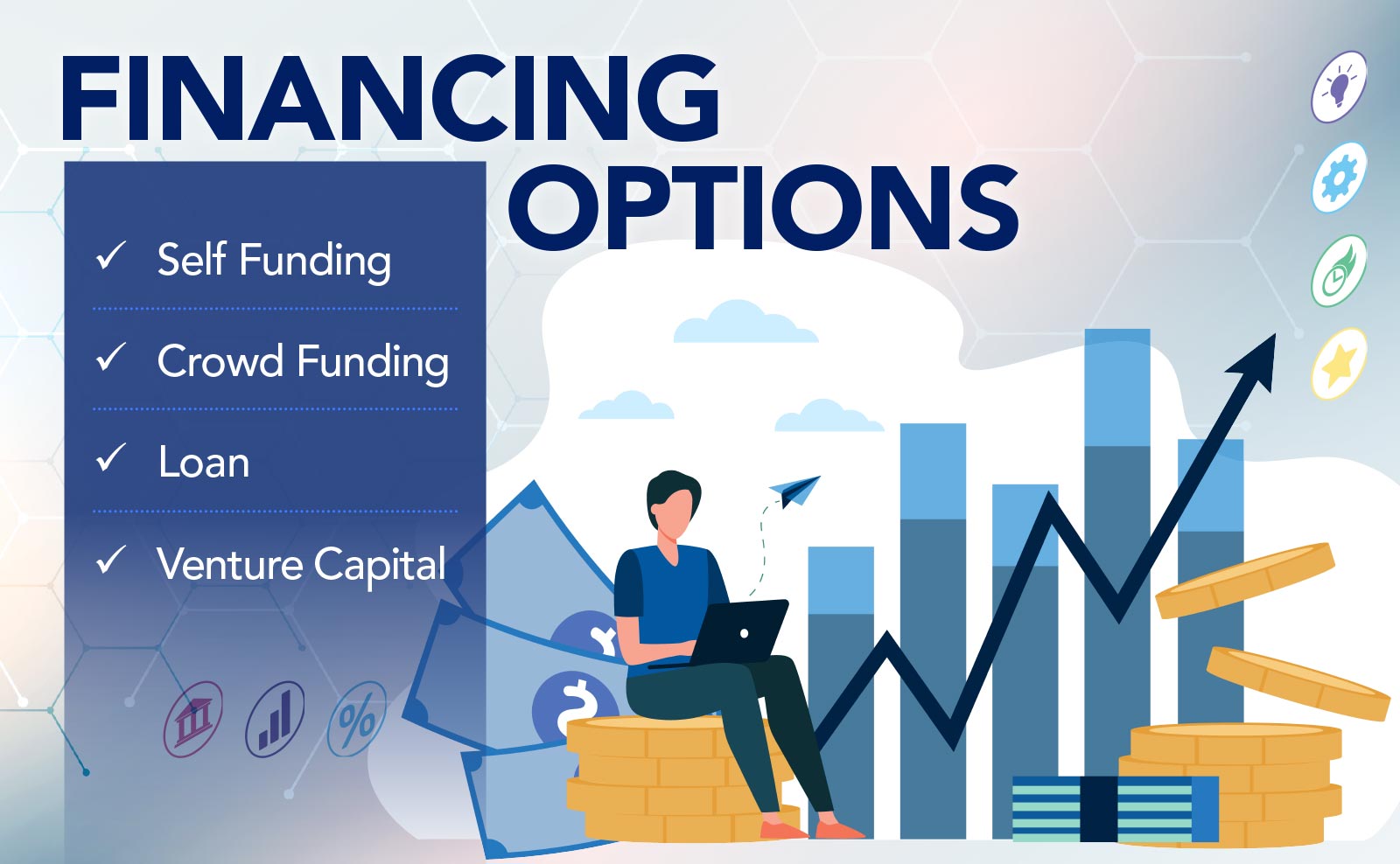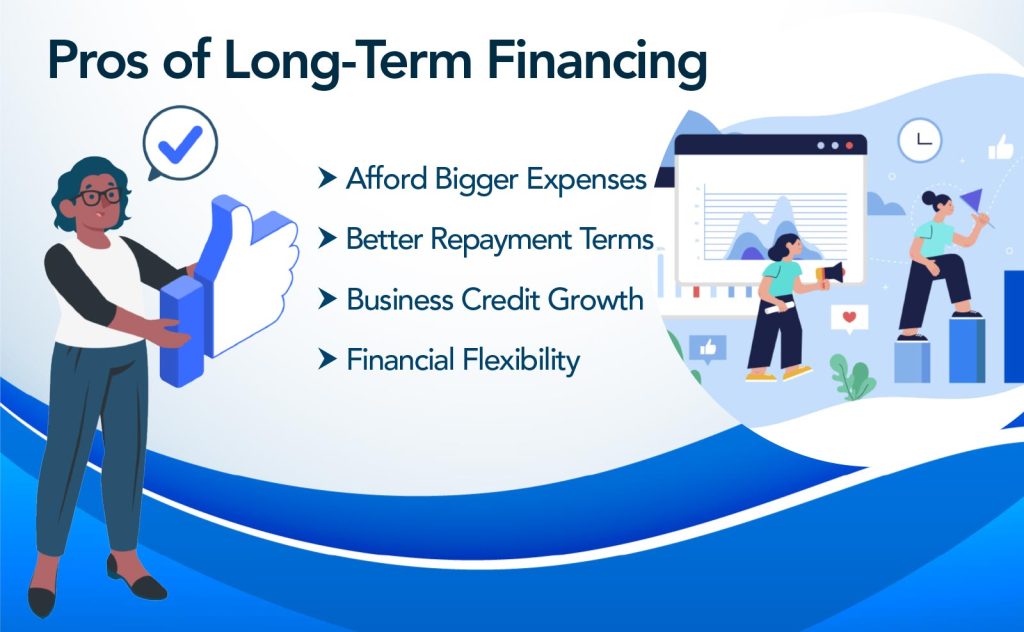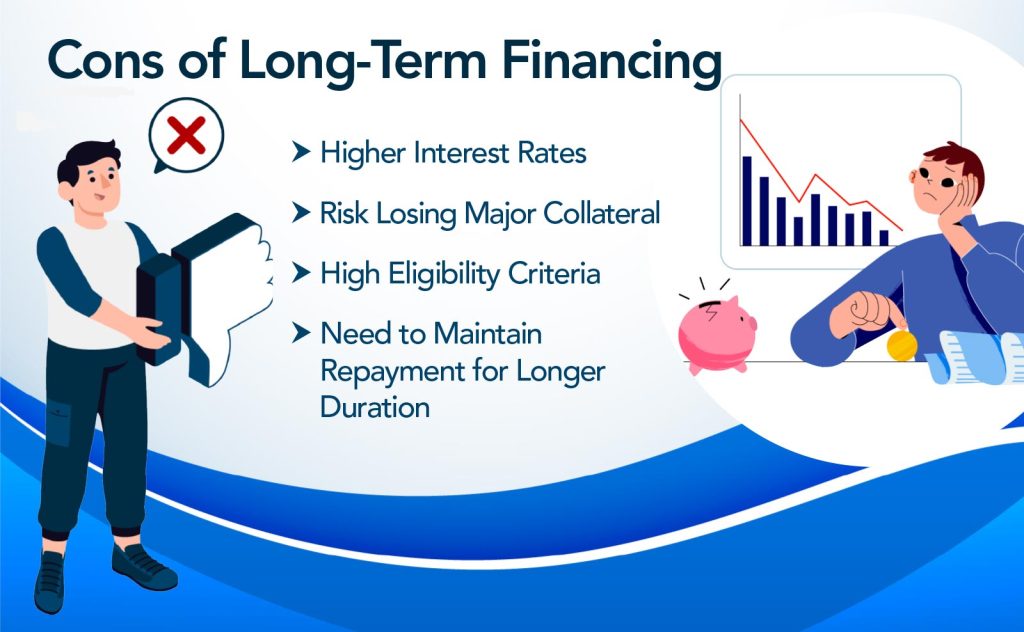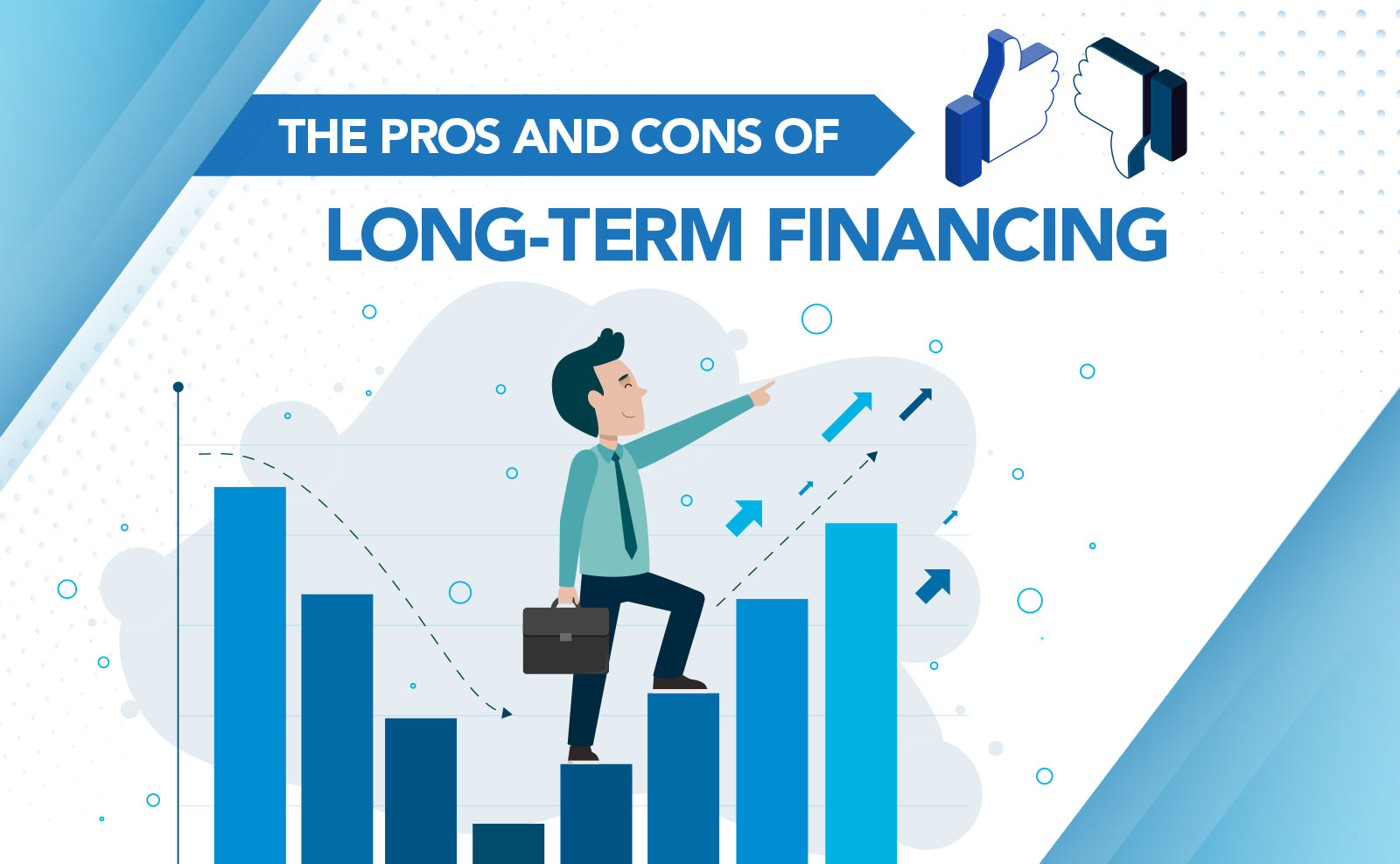Long-Term Financing is crucial to understand when you want to manage and grow a business. Moreover, you must know how to use it to benefit your organization. Financing refers to funding business activities, expenses, and investments. When attempting to attain financing, organizations often go to financial institutions such as banks or other businesses that offer capital.
There are plenty of financing options available for your organization. These are the following:

- Self-funding
This may be the first funding you’re considering if you can afford it. This may mean taking money out of your savings or asking loved ones for donations. However, this does come at the risk of losing the saved money you invested into the business.
- Crowdfunding
The next option would be to do crowdfunding. This means finding and building a community that wishes to support your business and ideas. They may provide funds in exchange for a free product, credit, or others. This is done through crowdfunding platforms such as Patreon, Kickstarter, and IndieGogo.
- Loan
Besides those, another financing option that’s worth considering is loaning. This may mean borrowing some funds from a financial institution like a bank. This is ideal if you’re confident that you can afford to pay it back in the future, but do expect that there will be some interest.
- Venture Capital
Lastly, another financing option worth considering is getting investment from venture capitalists. You may give equity or a temporary percentage of future sales in exchange for funding. You will have to convince them that your business is profitable by presenting a business plan, value proposition, financial projections, and a pitch deck.
Besides this, when obtaining financing, you’ll also have to consider if you’ll do long-term or short-term financing. Short-term financing involves paying back the amount borrowed in less than a year. Meanwhile, long-term financing means paying back the funds over more than a year. Again, you may take Credibly’s long-term business loans as an example.
Making sound financial decisions can make or break a business, which also applies when attaining financing for your organization. To make a more informed decision between short-term financing and long-term financing, consider the following pros and cons:
Pros
First, you’ll want to consider the following advantages that you’ll gain if you consider long-term financing:

Afford Bigger Expenses
One significant advantage of long-term financing is that it allows you to afford more considerable expenses, such as buildings and equipment. This is because long-term financing often offers more substantial sums of funds. Accordingly, the assets purchased using this loan will usually be used as collateral.
Consequently, this can result in faster growth for your business, as it allows you to afford more extensive and long-term projects that will serve your organization’s future growth. With long-term loans, you can afford massive marketing campaigns, research for product development, and more.
Better Repayment Terms
Another benefit of using long-term financing is that you can expect more flexible repayment terms. For example, the longer it takes to pay for a certain amount, the smaller the monthly payments become.
Moreover, this arrangement may also be preferred by financial institutions and businesses since their commitment is for longer durations, and they gain a stable income stream. However, you must have ensured that your company can consistently shoulder the monthly repayment.
Business Credit Growth
The third pro of long-term financing is that you get to build up your business’ credit. Doing so can establish your organization’s credibility regarding repaying loans. This can open up opportunities for bigger and better loan terms in the future. However, it’s crucial that you make your monthly repayments on time, if not in advance, as failure to do so can negatively impact your company’s credit.
Financial Flexibility
Fourth, organizations often go for long-term financing because it offers financial flexibility. Firstly, this frees up cash and gives you funds to afford activities, projects, and expenses. You may also invest extra funds to make even more earnings.
Or you may also make payments in advance whenever your organization is able. This will grant you lower monthly repayment terms and allow you to repay the loan immediately, giving you the benefits of a short-term loan.
Cons
Next, you’ll also want to consider the following disadvantages that you’ll encounter if you choose long-term financing:

Higher Interest Rates
The first con of long-term financing is that it can result in a higher interest rate. So while the lender can look forward to a stream of income for a more extended period, on the other hand, they’ll be facing long-term risk too.
As a result, they increase the interest rate to earn from the increased risk they take. Furthermore, this also allows them to better combat inflation as the money returned to them won’t be worth as much as it was when it was lent to the borrower.
Risk Losing Major Collateral
Another disadvantage you’ll have to expect when taking out long-term loans is that you risk losing the asset you put up for collateral. As the funds are expected to be more significant and total repayment won’t be completed for a long time, the lender often requires collateral to mitigate the risk. Thus, you won’t only have to come up with collateral, but you’ll also face the risk of losing this asset until you’ve fully repaid your debt.
High Eligibility Criteria
The third con of going for long-term financing is that it may be challenging to qualify for the loan. Much like personal loans, business loans involve financial institutions or businesses checking your financial history, from business profitability to your history of repaying loans.
Often, because long-term finance involves large sums and longer repayment terms, lenders prefer reliable borrowers. As such, it may be difficult to attain such a loan if you’re a new business with no credit score.
Need To Maintain Repayment For Longer Duration
Lastly, another disadvantage when going for long-term financing is that you’ll have to repay the loan for longer consistently. Again, this can negatively impact your credit score and cash flow if you don’t have a solid debt repayment strategy.
Firstly, long-term loans will require consistent monthly repayments for an extended period, and failure to be consistent can reflect poorly and decrease your credit score. Consequently, you’ll have a more challenging time qualifying for loans in the future.
Next, long-term financing will also involve money coming out for years until the debt is fully repaid. Essentially, you’ll have to ensure that your organization can handle the expense of repaying the deficit in the future. Otherwise, in a situation wherein the company makes little to no earnings, you’ll have a negative cash flow. This refers to when more money is being spent than what’s being earned.
Conclusion
Making solid financial decisions for your business is crucial for growth and survival. This also includes learning to effectively and sustainably finance your activities, investments, and expenses. Hopefully, with the guide above, you’re better informed on whether long-term financing is the right decision for your organization. Next, consider researching more, especially regarding short-term financing, to decide better if long-term or short-term financing is appropriate.









